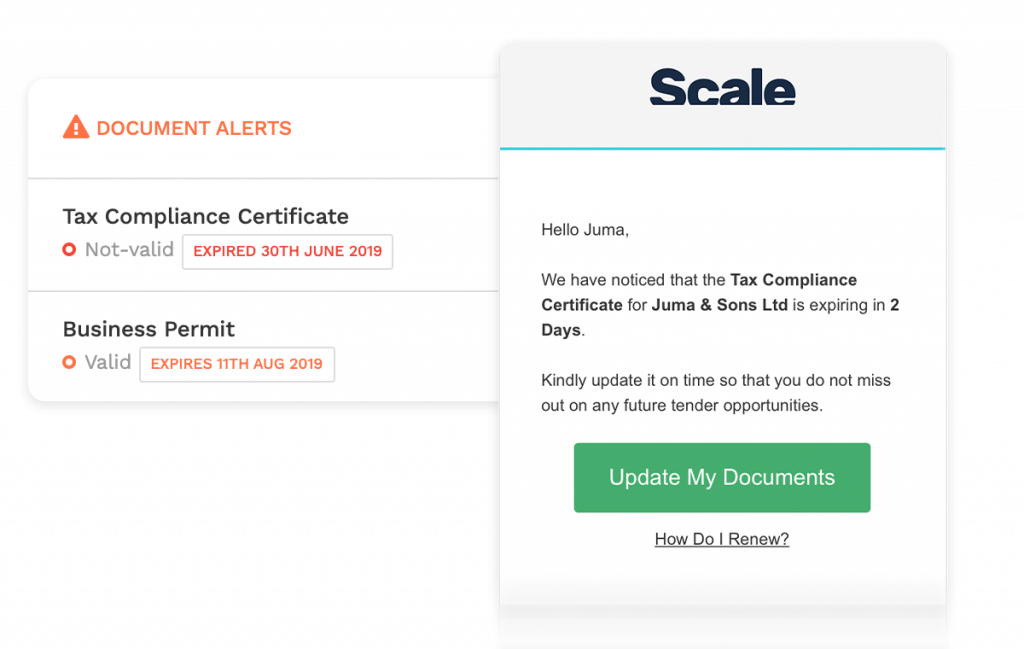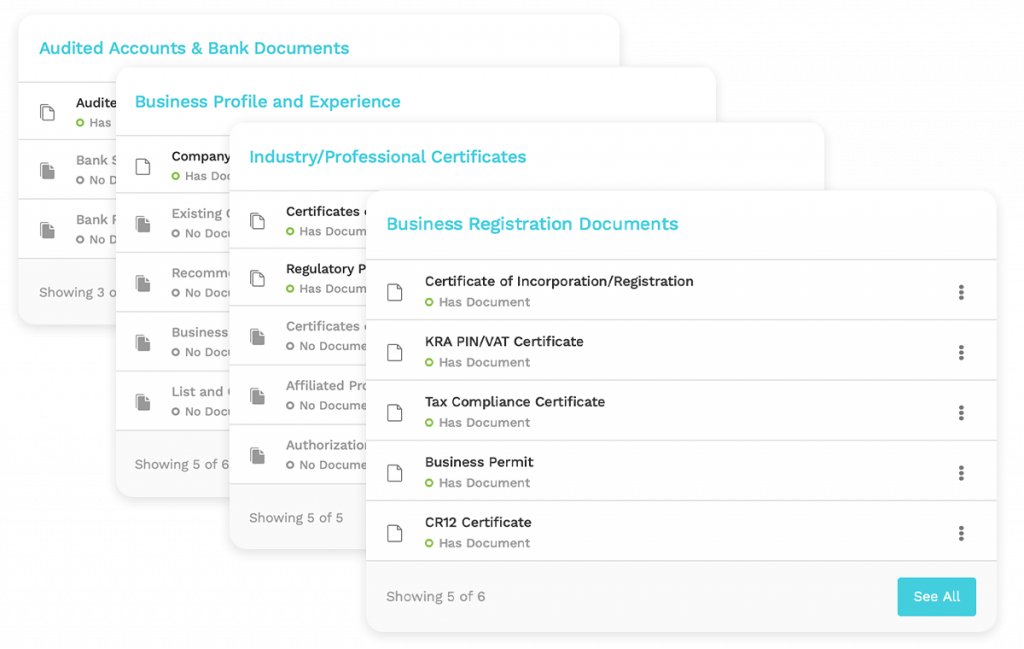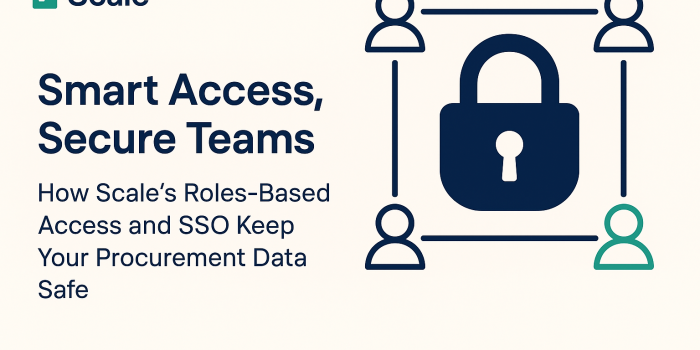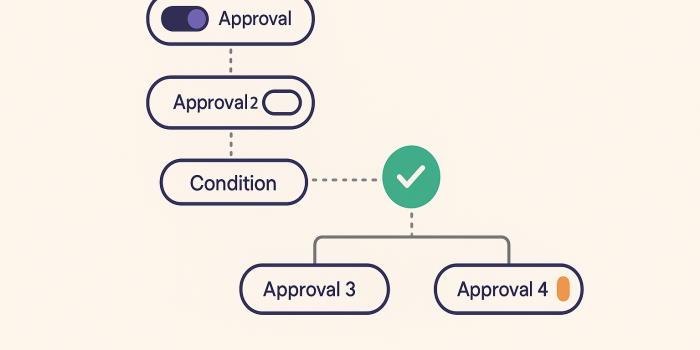This is how to manage all your Tender Documents
Scale ensures the latest copy of all the different types of tendering documents are securely stored and easily accessible to yourself and your team members.

One of the key concerns MSMEs in Kenya have is how to manage all the tender documents a business has. A business owner receives a number of legal documents immediately after she sets up a business. These documents show your company is legally registered and can do business in Kenya. Some are continuously updated to prove that your business is operating compliantly with the laws and regulations of the land. A good example is the payment of your company’s tax obligations.
Beyond what the government provides, there are some documents that you will apply for from your bank or insurance provider. There are some you will register for from industry-based regulators. And some that you prepare to show your business competency, professionalism and credibility to do work.
Clearly, it is risky to have many different copies of a similar document being used across the business.
Scale’s Tender Documents Management System
In an effort to make your tendering experience better, our platform provides a fully functional Documents Management section. You can use it to securely and confidently store and manage practically any type of tender documents.
Moreover, it acts as the main repository of the latest version of the documents you can use in tendering, and it’s provided under the following categories:
Business Registration Documents
- Registration documents are official Government documents that verify a company as registered and can legally conduct business in the country.
- Such documents include; Certificate of Incorporation, Business Permits, CR12, KRA Pin Certificate, Tax Compliance Certificate, AGPO Certificate, NHIF/NSSF Compliance Certificates and others.
Industry/Professional/Compliance Certificates
- After an entity or individual masters certain professional skills, they can apply for an industry-based certification as proof. These certificates include MSK, PRSK, ICPAK, APA, NCA among others.
- Some are issued by the industry regulator to businesses that are compliant with the set regulations of operation. The certificates under this category include NHIF, ERPA, KEBS etc.
Bank Statements and Audited Accounts
- Your Audited Accounts get generated after the Financial Statements of your business are audited by a certified auditor. This happens at the end of each Financial Year as required by the Income Tax Act. Further, these audited account statements are only provided by Certified Financial Auditors and must be obtained Annually.
- Additional documents in this category include Bank Statements, Bid Bonds, Bank Guarantees, Performance Security, Advance Payment Guarantees and Reference Letters.
Company Profile and Experience
- This is basically a professional summary of the company’s experience and history of work done. The profile document should include awards, certifications, client portfolio, business contacts and office location. We do not have a recommended or a standard format prescribed for this. It is entirely up to you to design and present it in the best way to sell your business.
- The other documents in this category include Director IDs, Client Reference Letters, List of Previous Clients and Existing LPOs/Contracts.
Staff CVs and Certificates
- We have designed and built it to give focus on the staff member and their professional documents. This brings about some differences between this section as compared to the other categories described thus far.
- To update it, you start by first creating a Profile for the team member. After which, you upload CVs, Recommendation letters, Academic Certificates, Awards/Recognition and Professional Memberships certificates (where applicable).
Renewable vs Non-renewable Documents
In a previous article Do Not Submit Expired Tender Documents!, we provided a clear breakdown of how documents can be broadly viewed based on their validity period. These are long-term use documents, single-use documents and regularly Renewable Documents. Scale comes with an inbuilt mechanism that ensures you easily manage all these types of tender documents.
To best manage your renewable documents for you, you need to provide the correct expiry date for each document uploaded. As a result, we will be able to send you email alerts whenever a document is due for renewal. This ensures you have ample time to apply for renewals and update them.

Why This is All Important
How you manage your tender documents is part of a critical ecosystem that we have built for you on Scale. We designed Scale to make certain you never lose out on a tender from attaching incorrect or expired documents. And to avoid renewal dates from catching up with you off-guard.
Some of the other digitized services that we are able to avail to you using this underlying technology include:
- The ability to create a detailed Checklist of all the documents required for each of your tender responses.
- The ability to review and verify all the documents that you want to include in your final proposal.
- The Issue tracking tool that highlights what needs to be resolved before exporting the final proposal.
- Automated alerts on expiry dates to give you enough time to renew your documents.
Through Scale, we provide a means of maintaining the integrity of your documents by giving a singular point of reference for everyone. We can guarantee you secure storage and easy access to the latest copy of your documents.









